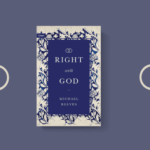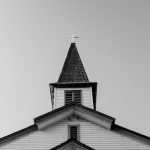How would you feel if the Federal government said that a law protecting your pastor while he was preaching was just as redundant as laws that protect people from being challenged to a duel?
Or what would you think if the same government said that a law protecting you from someone disrupting Sunday worship was just as outdated as a law that criminalizes the fraudulent practice of witchcraft?
This is precisely what the Federal government is saying in Bill C-51.
Background of Bill C-51
On June 15, 2017, the Parliamentary Secretary to the Minister of Justice and Attorney General of Canada introduced Bill C-51 to our House of Commons. In his speech, he described Bill C-51 as accomplishing four objectives relating to the Criminal Code of Canada:
(1) clarify and strengthen the law of sexual assault;
(2) remove or amend provisions that have been found unconstitutional by the courts;
(3) remove obsolete or duplicative offences; and
(4) create a statutory duty for the Minister of Justice to provide a statement for every Government bill setting out how that bill may impact rights under the Charter of Rights and Freedoms
Bill C-51 is significant in many respects, but for the purposes of this article, I want to turn your attention to the fourteenth clause of Bill C-51. This little clause easily escapes the notice of the casual reader, but it has the potential to significantly undermine religious freedom, not just for Christians, but for people of all religious faiths.
Put simply, Clause 14 of Bill C-51 does two things: it eliminates a law that protects clergy, and it eliminates a law that protects religious worship services.
Right now, Section 176(1) of the Criminal Code protects clergy and ministers from being obstructed or prevented from performing their religious duties, including their travel to and from to perform those duties. This means that if someone were to impede your pastor from leading a prayer meeting, preaching, travelling somewhere for a pastoral visit, administering the Lord’s supper, or doing anything else that pastors do, that person could be arrested by the police, charged with a criminal offence, and taken through the criminal justice system.
Section 176(2) broadens the protection of the criminal law to anyone who is participating in a worship service by criminalizing the wilful disturbance or interruption of such a service. This wouldn’t just cover a person bursting into the sanctuary during worship and shouting in order to disrupt the service. It would also cover silent protests done at a church in opposition to that church’s moral positions.
Bill C-51 would eliminate both of these laws and leave nothing in their place.
Why is the Federal government doing this? The answer to this question is rather shocking. The removal of these laws has nothing to do with objectives (1) or (4). It also does not meet objective (2), as no court has ever found s. 176 unconstitutional. On the contrary, both the Supreme Court of Canada (See Skoke-Graham v. The Queen, [1985] 1 S.C.R. 106.) and the British Columbia Court of Appeal (See R. v. Reed (1994), 91 C.C.C. (3d) 481.) have ruled in favour of the constitutionality of these offences!
This leaves us with objective (3): to remove obsolete or duplicative offences.
What Is The Harm?
At this point, someone may ask, “What’s the harm of removing these two laws? Isn’t the type of conduct that would obstruct a pastor or disrupt a worship service already criminalized under other laws? These laws seem obsolete, don’t they? Why do we need separate laws to protect pastors and worship services?” It’s true that much of the conduct that would lead to a criminal charge under s. 176 is already covered by other criminal laws. If someone were to threaten to kill me if I kept preaching, they could be charged with uttering threats. If someone were to lock me in my house to keep me from visiting someone, they could be charged with forcible confinement. But despite these examples, there is much conduct that would not be criminal if s. 176 didn’t exist. To help you understand what I mean, let me introduce you to Mr. Reed.
On two consecutive Sundays in 1991, Mr. Reed placed himself near the front door of his friendly neighbourhood Kingdom Hall in Delta, British Columbia. He wasn’t there to sell cookies. He wasn’t even there to find out more about the Watchtower Society. Instead, he came wearing placards which denounced the Jehovah’s Witnesses as followers of a false religion. None of the placards were threatening. They made theological statements, declaring that the Watchtower was a product of demonic deception, and that the god of the Jehovah’s Witnesses was Satan himself. Then, as congregants entered the Kingdom Hall for their weekly service, he made sarcastic remarks to them, such as, “Enjoy the Watchtower, brother”, or “Listen to Jehovah.”
On the basis of this conduct, and this conduct alone, Mr. Reed was arrested by the police, charged with disrupting a worship service under s. 176, and convicted. His conviction was ultimately upheld by the British Columbia Court of Appeal (Ibid.).
I think everyone would agree that Mr. Reed’s conduct was inappropriate. Others would say his conduct was offensive. My point in telling you this, however, is to point out that none of his conduct was criminal outside of s. 176, the very law that the Federal government plans to eliminate in Bill C-51. He didn’t commit an assault. He didn’t utter any threats. He didn’t commit a criminal trespass. But he did disrupt a worship service. The existence of s. 176 allowed the police to intervene, which in turn allowed the Jehovah’s Witnesses to continue their services in peace.
Is s. 176 redundant or obsolete? I don’t think so, and I believe that the Jehovah’s Witnesses would agree with me. This law has played, and will continue to play, a unique and important role in protecting religious freedom in Canada.
Our True Protector
If Bill C-51 is passed, it won’t be the end of the world. We may start seeing protestors at the doors of our churches, but if the gates of hell will not prevail against us (Matt 16:18), what have we to fear? We serve a sovereign God who is in control of all things, including our current government, “For there is no authority except from God, and those that exist have been instituted by God” (Rom 13:1). Even when earthly governments plot against God and his people, our God laughs at them and declares, “As for me, I have set my King on Zion, my holy hill” (Ps 2:1-6)
We need to do our part in making our concerns heard. We can contact our Members of Parliament. We can write letters. We can write editorials in the paper. But if our petitions fall on deaf ears, there is One who not only hears our petitions, but brings them before His Father to answer for our ultimate good (Rom 8:28). Jesus is our King, our Suffering Saviour who purchased us with His own blood, and He reigns as our mediator forever.
As we respond to Bill C-51, let us spend more time addressing our Heavenly Father in prayer than the earthly authorities He has set over us. He is good during times of religious freedom, and He will be good even if that freedom is removed.























